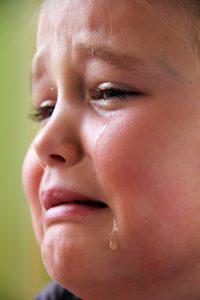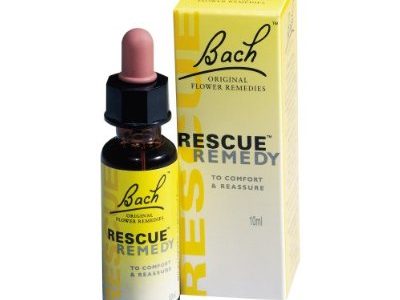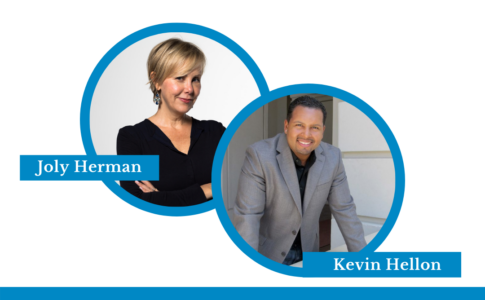October is Domestic Violence Awareness Month. It is the time to educate and have discussions about abusive relationships. Even situations we don’t consider abusive—if only because what we call abuse is narrowl y defined—can damage our sense of emotional safety, and that of our children.
y defined—can damage our sense of emotional safety, and that of our children.
According to William Glasser, founder of a popular psychological approach known as Choice Theory, feeling loved and having a sense of belonging are our most significant emotional needs. When those needs are fulfilled, we accomplish closeness and connectedness. Feeling close and connected with our loved ones is a necessary precursor to satisfying our other needs. Unfortunately, some of us did not experience closeness and connectedness as children. And, many of us do not experience it in adulthood.
How Disconnect Leads to Abuse
A sense of disconnect can be sourced to having been victims of verbal or physical abuse as children. Disconnect can happen if we witnessed abuse too– if our parents engaged in an abusive relationship, for example. Maybe we found ourselves involved with an abusive partner, or are struggling with maintaining healthy and successful interpersonal relationships.These feelings of disconnectedness, according to Glasser, lead to dysfunction. The result? Domestic violence, addiction, and other forms of mental illness. As parents, it is vital to recognize and avoid behaviors—exhibited by ourselves or others—that cause and perpetuate feelings of disconnectedness in our children. According to Glasser, there are seven of these behaviors, termed deadly habits. Avoiding these can make a tremendous difference in our children’s lives.
The 7 Deadly Habits
- Criticizing – Making negative, non-constructive remarks to a person about any aspect of their being.
- Blaming – Pointing fingers at others in any situation, rather than practicing accountability.
- Complaining – Making negative, non-constructive remarks about a person, place, thing or situation without taking any accountability or responsibility to change any aspect within your control.
- Nagging – Constantly and relentlessly attempting to change any aspect of another person’s being, typically via criticism and threats.
- Threatening – Giving warning of intent to inflict emotional, psychological, spiritual or physical harm in an effort to gain control.
- Punishing – Removing any aspect of the relationship or publicly shaming any aspect of a person in response to a negative emotion.
- Bribing, rewarding to control — Offering incentives for good behavior.
As solo parents, we may see ourselves doing a few of these things from time to time, merely as a result mental or physical exhaustion. Let’s face it; when raising a child alone, the choices we make, or how we react to certain situations, don’t always include the luxury of being well thought out. But, we can usually prevent long-term damage by taking accountability and apologizing to our children when we know we’ve reacted poorly to any given situation.
However, by constantly engaging in deadly habits, we can be inflicting psychological and emotional damage on our kids. These habits can be deadly to our relationship with them.
Don’t be fooled. Children are also affected when deadly habits are exhibited by others toward us. Relationships of any kind—romantic, familial, or otherwise—that illustrate these toxic behaviors are abusive in nature, and are detrimental to the fragile psyche of a child exposed to them. These deadly habits often co-occur with, or precede, physical abuse and violent outbursts.
Reflection Can Help Stop the Cycle
In an effort to be a good example for our kids and provide them with an emotionally safe home in which they can experience closeness and connectedness, we must ask ourselves:
- Were these deadly habits present in my childhood?
- In my past romantic relationships?
- Are they present in my friendships?
- With my family members?
- With my children?
- With myself?
It is crucial to take a personal inventory of these past and present relationships, our behaviors in them and those exhibited by others in an effort to prevent further damage.
Once we realize deadly habits exist in any relationship in our lives, we need to make changes in order to stop the cycle of abuse.
Ultimately, the only behavior we can control is our own. Period. But that is the best place to start. When we witness unacceptable behavior, we do have choices. We can provide information, and we can walk away when we see no change in behavior.
The best thing we can do for our children is to lead by example. So we must first focus on ourselves.
Taking Action to Heal
Some of us have been given substandard tools with which to build relationships. We need to replace those tools with functional behaviors: support, encouragement, listening, acceptance, trust, respect, and the ability to negotiate differences. These are known as caring habits. We can use them in our relationships– including the one with ourselves– to help us grow as individuals and keep us accountable as parents. By committing to these habits, we can help protect ourselves and our children from abuse of any kind.
If we need help, we must get help. Losing our tempers too often, feeling overwhelmed, feeling unable to protect ourselves or our children, are all indications that we need help. Whether it’s getting counselling, therapy, finding support groups, or other means of help, for the sake of our kids, we must take care.
Ending the cycle of domestic violence and abuse begins with us. Imagine the change we can make when we stop perpetuating unacceptable behavior, and begin a journey of care and love.
With kind thanks to www.wglasser.com






